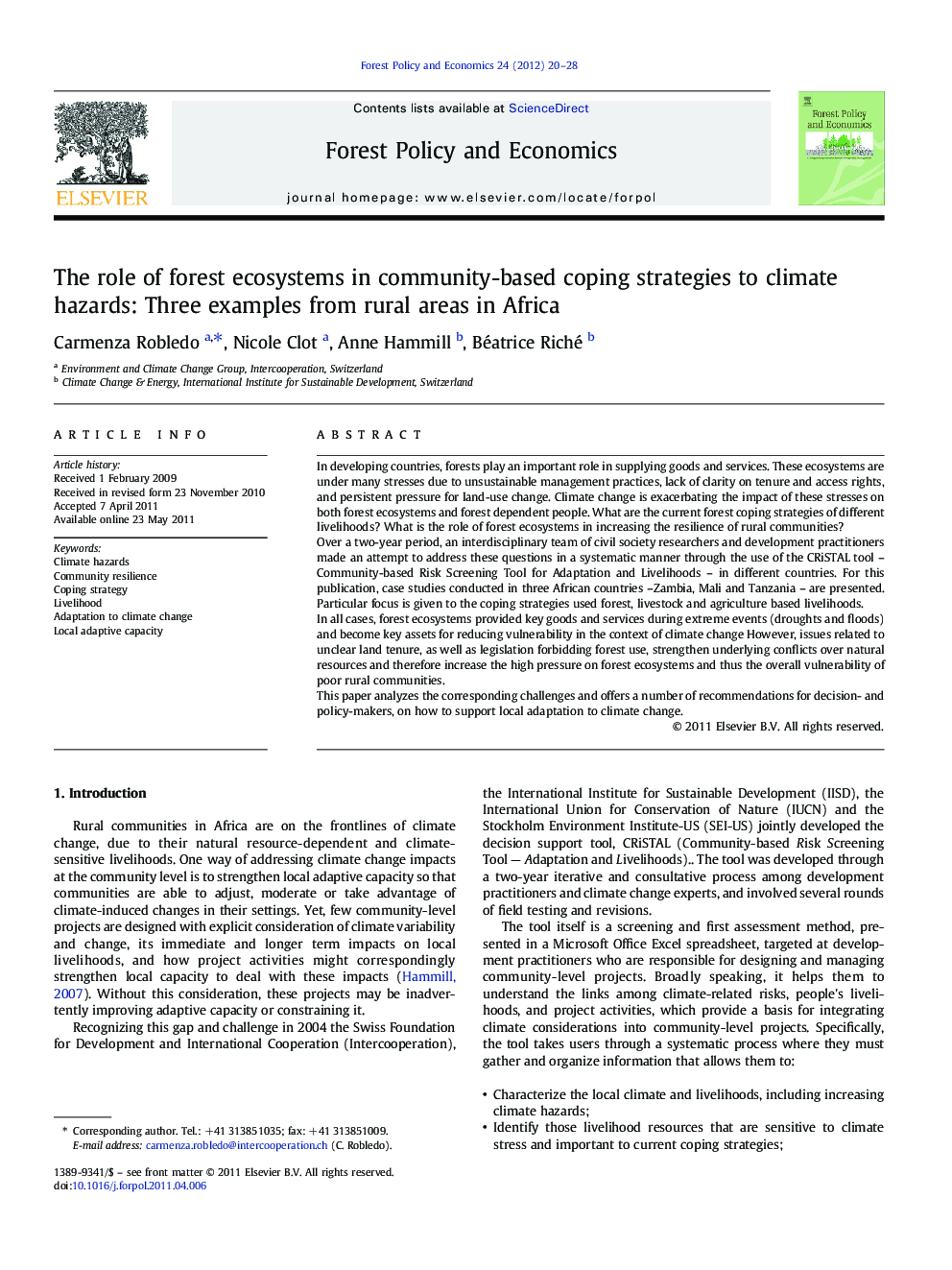| Article ID | Journal | Published Year | Pages | File Type |
|---|---|---|---|---|
| 92056 | Forest Policy and Economics | 2012 | 9 Pages |
In developing countries, forests play an important role in supplying goods and services. These ecosystems are under many stresses due to unsustainable management practices, lack of clarity on tenure and access rights, and persistent pressure for land-use change. Climate change is exacerbating the impact of these stresses on both forest ecosystems and forest dependent people. What are the current forest coping strategies of different livelihoods? What is the role of forest ecosystems in increasing the resilience of rural communities?Over a two-year period, an interdisciplinary team of civil society researchers and development practitioners made an attempt to address these questions in a systematic manner through the use of the CRiSTAL tool – Community-based Risk Screening Tool for Adaptation and Livelihoods – in different countries. For this publication, case studies conducted in three African countries –Zambia, Mali and Tanzania – are presented. Particular focus is given to the coping strategies used forest, livestock and agriculture based livelihoods.In all cases, forest ecosystems provided key goods and services during extreme events (droughts and floods) and become key assets for reducing vulnerability in the context of climate change However, issues related to unclear land tenure, as well as legislation forbidding forest use, strengthen underlying conflicts over natural resources and therefore increase the high pressure on forest ecosystems and thus the overall vulnerability of poor rural communities.This paper analyzes the corresponding challenges and offers a number of recommendations for decision- and policy-makers, on how to support local adaptation to climate change.
Research Highlights► We investigated the coping strategies of rural communities in three countries in Africa to climate hazards. ► We examine the corresponding links to changes in the use of forest ecosystems. ► We identified factors that promote or prevent the use of sustainable coping strategies related to forest ecosystems.
